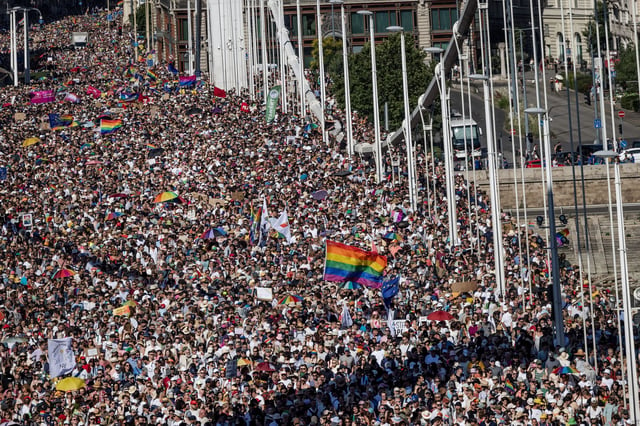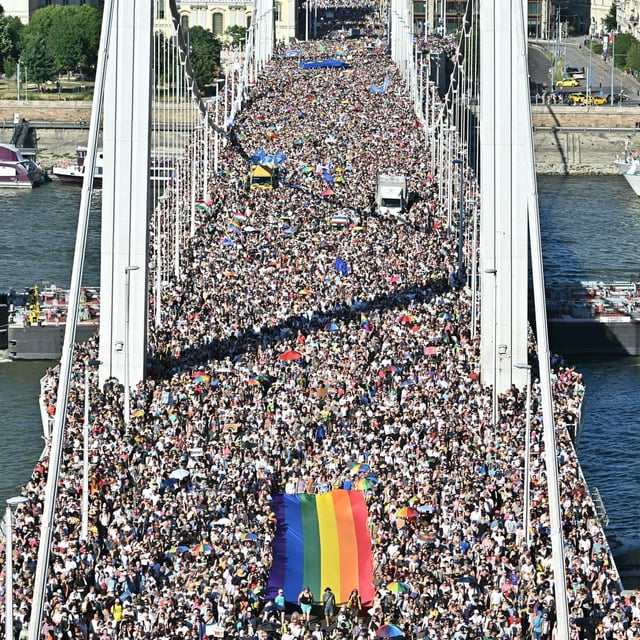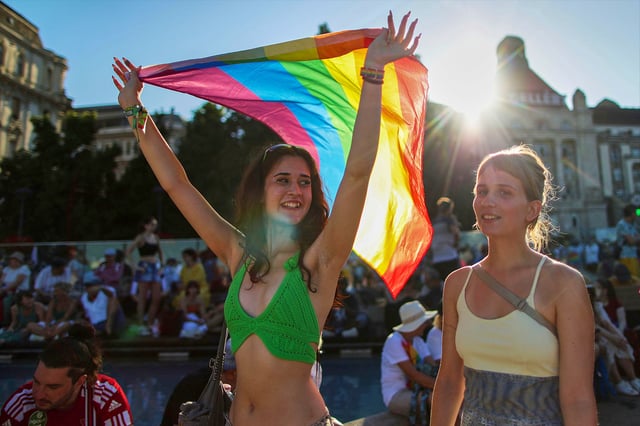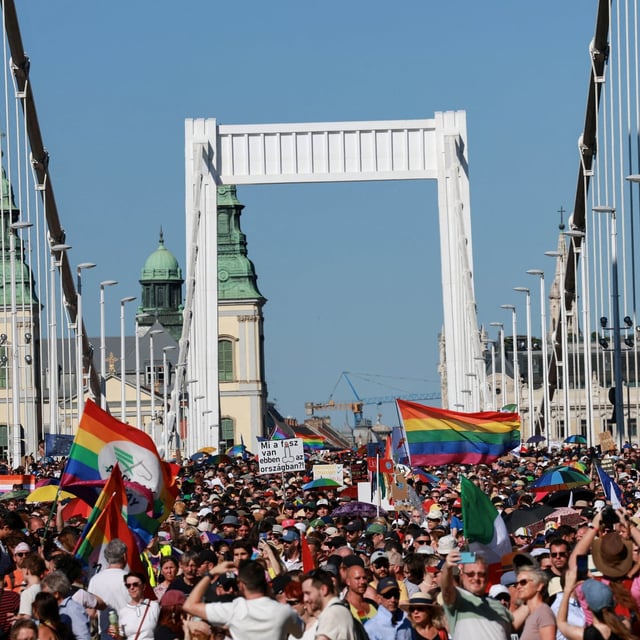Overview
- An estimated 100,000 people gathered for Budapest Pride on June 28 after organizers secured municipal backing to bypass a constitutional ban on LGBTQ+ public events.
- The Hungarian parliament’s March amendments to the Assembly Act authorized facial recognition to identify participants and levy heavy fines, yet police largely refrained from arrests during the march.
- Budapest’s mayor, Gergely Karácsony, risked imprisonment after designating the parade as a city-sponsored event, highlighting rising political pressure on civic leaders.
- Far-right demonstrations were allowed to proceed freely that day, underscoring biased enforcement of Hungary’s assembly laws.
- Human rights groups and Pride organizers are calling on the European Union to employ its full rule-of-law toolkit, including funding freezes and Article 7 proceedings, to challenge Hungary’s anti-LGBTQ+ legislation.



